The ACI Annual Airport Economics & Finance Conference & Exhibition, held in partnership by ACI EUROPE, ACI World and ACI Asia-Pacific, returned to London, following last year’s event in Singapore. The annual gathering was attended by 300 key industry stakeholders, among which were airport CEOs, CFOs, airport investors, financial institutions, and regulators.
The event took place at a time of cautious optimism, with economic growth returning to most regions. However, while there is optimism, challenges remain, with ongoing economic uncertainties in the EU and fiscal imbalances in the US. Emerging markets are also seeing a slowdown in economic growth.
While the conference covered a wide range of topics, the common thread was that of economic regulation and airport competition. With increasing competition a key feature of the airport industry, it was widely asserted that economic regulation should reflect the competitive pressures faced by individual airports. It was appropriate that the event took place in London, the UK Civil Aviation Authority (CAA) having recently announced that both London Heathrow and London Gatwick airports will continue to be economically regulated in the five-year period beginning on 1 April – a subject that was the source of much debate in the engaging conference sessions.
Meanwhile, ACI EUROPE launched a new analysis paper at the event, Competition in the European Aviation Sector, with the aim of progressing the debate on airport competition.
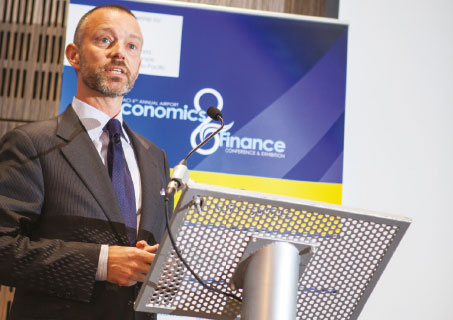
ACI EUROPE Director General Olivier Jankovec explained that 2013 was a year of recovery, with the Russian and Turkish markets performing very well, and the southern European markets still affected by the economic crisis. “All in all, it comes down to a two-speed market for Europe,” he said. In 2013, EU countries saw 1% growth and non-EU countries 9.6% growth. Jankovec was positive for the outlook for 2014. Turning to macro-economics, he added: “We’re seeing the economic recovery in Europe gathering pace. The US economy is also performing increasingly better. Where there are concerns are the emerging markets, where we see a slowdown in economic growth.”
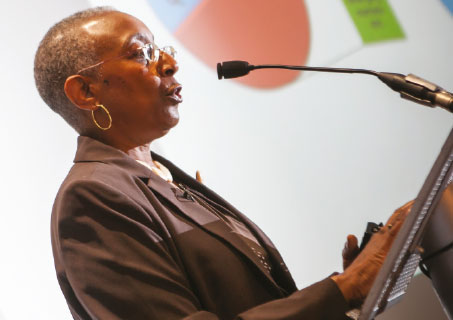
ACI World Director General Angela Gittens delivered a preview of the 2013 ACI Economics Report, which contains global indicators and analyses for over 680 airports, representing 70% of the world’s passenger traffic. Gittens explained that worldwide traffic increased by 4% in 2013, while global airport income in 2012 grew by 4.4% to reach US$117bn. “Aeronautical revenues alone are not enough. The move to revenue diversification has been key to the financial resilience of airports, with retail the leading source of non-aeronautical revenues,” she said.
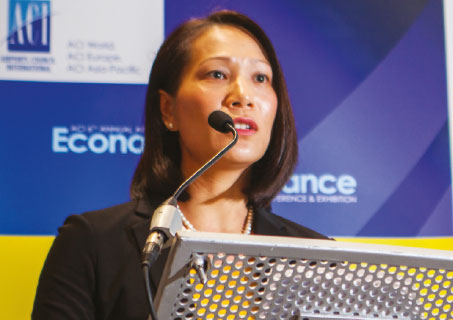
Patti Chau, Regional Director, ACI Asia-Pacific, referred to the healthy growth of airports in the Asia-Pacific. Indeed, 9 of the world’s 20 busiest airports are located in the Asia-Pacific region. “No doubt, this is partly down to the growth of Asian LCCs, which account for over 50% of intra-Asian traffic,” she commented. Chau also referred to the recent inaugural EU-ASEAN Summit held in Singapore, and the fact that a single ASEAN aviation market is planned by 2015 – a development supported by ACI Asia-Pacific.
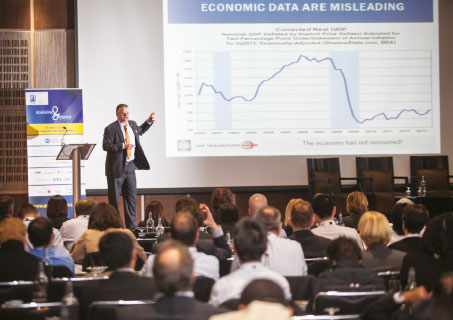
Dr Charles Schlumberger, Lead Air Transport Specialist at The World Bank, gave an energetic keynote address. He engaged the audience by presenting two different scenarios: the first that air transport will continue to grow and passenger traffic will double by 2030; the second, a more pessimistic view that economic data is misleading and that the global economy is not recovering, while conventional oil production will soon decline, triggering a global energy crisis. He asked delegates to vote for which scenario they felt was most likely – the results were interesting, with 49% optimistic, 50% pessimistic, and 1% abstaining. That contrasted sharply with the results of a similar poll at last year’s event, when 73% had a positive outlook, 25% a negative outlook, and 2% abstained.
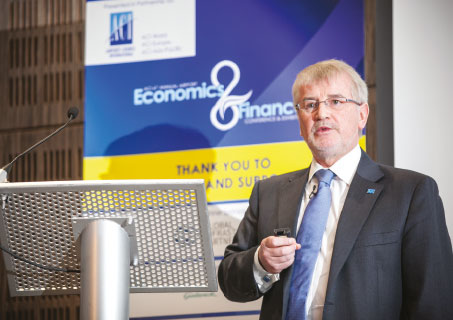
Declan Collier, CEO London City Airport, emphasised the increasing competition between airports for new business, as well as the competition that exists between modes of transport, particularly in Europe. He also referred to the fragile finances of Europe’s smaller airports – 51% of airports handling fewer than 5m annual passengers are loss-making. Collier also raised the subject of airline evolution. “We are seeing more mergers, bigger airlines changing their patterns of doing business, and LCCs evolving,” he said.
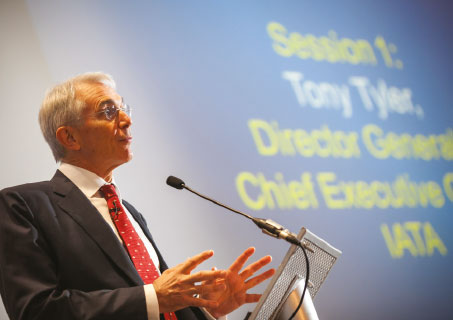
Tony Tyler, Director General & CEO, IATA, referred to a briefing paper that the airline trade association released last year on airport competition. That was in response to a study of Airport Competition in Europe published by Copenhagen Airports and Dr Harry Bush. Tyler said: “Our research shows there is still a need for robust, smart regulation, so that there are clear guidelines for airports.” He added: “Airports and airlines are always going to have differences, but we should focus on areas where we can work together.”
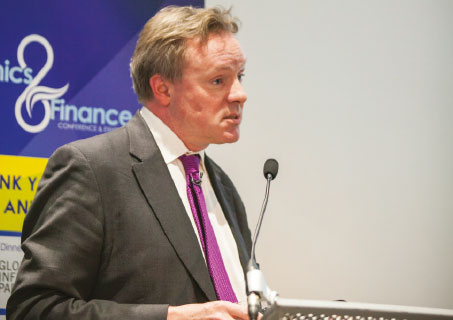
Kyran Hanks, Strategy & Regulation Director, explained that London Gatwick acknowledges that the UK Civil Aviation Authority has continued to accept its Contracts and Commitments framework as the best way forward to regulation. He said the framework is underpinned by a licence, supplemented by annual monitoring of pricing, service quality and capex, and that a review will take place in the second half of 2016 to check how the Commitments are working in practice.
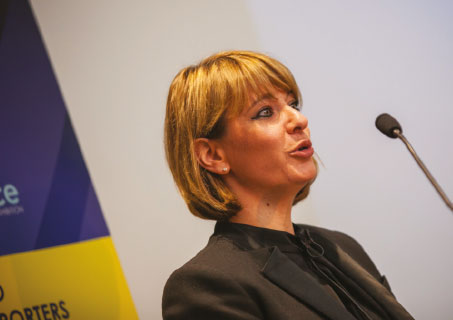
Emma Gilthorpe, Director Strategy, Planning and Regulation, criticised the price cap imposed on London Heathrow by the UK CAA in its decision on price regulation of the airport, while recognising that it’s correct that Heathrow should be regulated in the current five-year period. “Heathrow operates in a vibrant, dynamic competitive environment. Regulation is supposed to reflect competition. Heathrow does not compete in the same market as London Gatwick. We are the only hub airport in the UK,” she said.
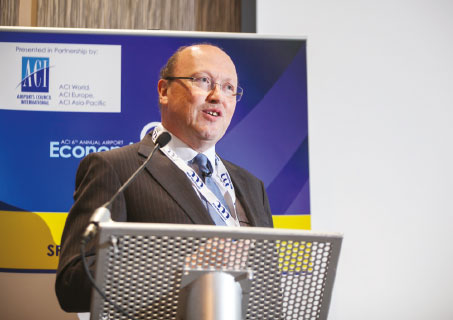
Michael McGhee, Partner, Global Infrastructure Partners, explained that London City, London Gatwick and Edinburgh airports are all performing well. He said the GIP approach to airport investment is to “improve the assets”, with a “long-term approach” focused on “delivering better service”. McGhee also highlighted a step-change in efficiency at London Gatwick, where it has managed to increase runway capacity at the single-runway airport from 50 movements per hour to 55. The new target is 58 movements per hour.
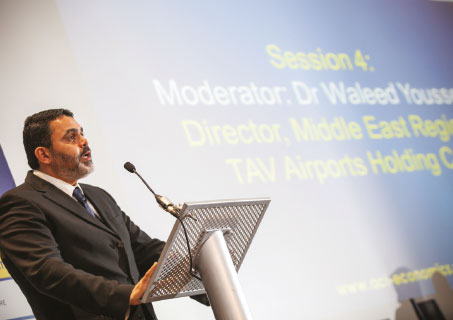
Dr Waleed Youssef, Director, Middle East Region, TAV Airports Holding: “We are very fortunate to work in such a dynamic industry that continues to grow. Our focus is on innovation and optimising our operations. One area of innovation is our industry’s focus on commercially oriented operations – this is taking place whether we are publicly or privately owned.”
Fresh analysis released on Competition
One highlight from this year’s ACI Airport Economics & Finance Conference in London was the launch of fresh analysis on competition within the aviation industry.This new analysis is the latest chapter of a debate about airport competition, which began in June 2012, when Copenhagen Economics and Dr Harry Bush, former UK airport regulator, published the first-ever comprehensive study of Airport Competition in Europe. That study provided quantitative evidence of the significant extent of airport competition. ACI EUROPE also produced a digest of the study called How Airports Compete.
In November 2013, airline trade association IATA contributed to the debate with its own briefing paper on the subject. That paper provided an alternative perspective and challenged the extent to which both passenger and airline switching between competing airports actually happens. However, the IATA paper also revealed potential common ground as regards the policy responses and solutions that the debate on airport competition requires. As a result, both ACI EUROPE and IATA seem to share the view that the using one rigid approach to regulating airports should be avoided – and that regulation needs to be proportionate to the actual degree of market power enjoyed by individual airports.
The new ACI EUROPE analysis paper Competition in the European Aviation Sector, launched in London builds on these commonalities with the objective of moving the debate on airport competition forward. It refines the way in which the market power of both players should be assessed and considers the impact upon their respective negotiating positions.
Donagh Cagney, Economics Manager at ACI EUROPE commented “The relationship between airports and airlines is a symbiotic one, albeit with some points on which there is sometimes disagreement. The aim of this analysis paper is really to build on the common ground we share with the airlines and advocate a means to better cooperation. It’s not the end-of-story answer, but it can only help make the debate more constructive. We need a more innovative approach to airport regulation in Europe based on trigger regulation or price monitoring. It would limit regulatory intervention and incentivise airports and airlines to develop better commercial relationships based on long-term contracts.”
The paper’s release at the ACI Airport Economics & Finance Conference in London generated a lot of interest from stakeholders from both sides. Expect the debate to run on for a while longer.
The analysis paper can be downloaded at http://bit.ly/OwSU4C







